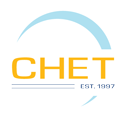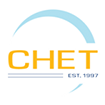Bob Dylan said it best: “The Times They Are A-Changin'”. It was true when the song was released in the 60s – a decade of cultural and political change – and it’s true today.
It’s no secret that many industries are rapidly evolving to keep up with cutting-edge technological innovation, and the transportation industry is no exception. With the new year under way, it’s important to predict key issues that will affect the trucking industry so that drivers, carriers and industry leaders can adjust and adapt to stay competitive. While advances are being made, there are still prevailing issues in our industry that need to be addressed this year.
Addressing the Driver Shortage
With the aging baby boomer generation approaching retirement and a large number of veteran drivers on commercial trucking fleets, there is a growing driver shortage. The Conference Board of Canada predicts a shortage of 33,000 for-hire drivers. If the prediction comes to fruition, there will be a major crisis shared amongst all carriers.
On a positive note, this makes the industry an attractive choice for individuals searching for a career that offers steady, lucrative employment and opportunity for advancement. As more and more drivers retire, more and more jobs open up, creating an abundance of opportunities for skilled young drivers to fill their seats.
The industry must search for ways to expand its workforce. One way to attract new drivers to the industry is by recognizing truck driving as a skilled trade, bringing it the level of professionalism and respect it merits. The only way to recognize it as such is for carriers to demand that new recruits have a high level of mandatory entry-level training from a reputable, accredited school and reward drivers with appropriate compensation. Superior compensation is a tool carriers can use to become more competitive both amongst other carriers and other trade sectors. Upholding a higher standard of entry-level training will help improve retention and overall safety.
Certified AZ driver training schools like CHET raise the bar and lift the industry standard by offering longer, more comprehensive training programs that include theory-based classroom components as well as hand-on experience in the cab.
CHET is unique in that we consistently provide entry-level job opportunities. Because we have become known in the industry for our credible certifications and memberships with such associations as the TTSAO, our graduates easily find employment with other carriers. More importantly, upon completion of an AZ Road Test, they are guaranteed a job with our ‘parent’ company, Musket Transport.
Because the transportation industry is continuously evolving, driving schools need to evolve to reflect new technological advancements and policy changes. At CHET, we’re committed to ensuring that our curriculum reflects these trends and changes. We are revitalizing our academy by updating our chapter content. It will now include an additional chapter called ‘Managing Expectations’ which lays out the realities of the job and sets criteria for what makes a driver reliable.
In addition to new content, our team is also currently pursuing the development of an online learning management system, which will make the learning process even more flexible and organized for our students.
What other key issues will affect trucking in 2016?
Mandating ELDs
Canada has ushered in a new Federal Government and, with it, a new Minister of Transport, Marc Garneau. He has called for an integral need to improve communication between drivers and carriers.
Canada is expected to move forward in the mandating of ELDs, or “electronic logging devices.” Last year’s Moving Ahead for Progress in the 21st Century transportation bill included provisions directing the Department of Transportation, through the Federal Motor Carrier Safety Administration, to put a rule into practice requiring that ELDs be placed in all vehicles operated by drivers currently required to keep paper logbooks. ELDs are capable of automatically recording drivers’ driving hours and duty status.
Initially, Canada was ahead of the curve in terms of this technology but lately has been seriously lagging behind in North America. The initiative to replace paper logbooks with ELDs first arose a decade ago in Canada, but only on a voluntary basis. If ELDs become mandated, they will help improve the relationship between drivers and enforcement. This will assist in communication and utilize facts.
GHG Regulations
A regulatory proposal for stricter greenhouse gas (GHG) emissions and fuel economy standards for heavy- and medium-duty trucks was announced by the U.S. Environmental Protection Agency (EPA) and the National Highway Traffic Safety Administration (NHTSA) in mid-June. All types of trucks, including large pickups, vans, and buses, for model years 2021 through 2027, are covered by the newly enforced vehicle and engine standards.
These new Phase 2 GHG standards are expected to have a strong impact on the transportation industry, reducing carbon dioxide emissions and fuel consumption for tractors by as much as 24 percent in 2027 compared to 2018. Phase 2 regulations differ from Phase 1 regulations because they include trailers. Volvo and Freightliner have been recognized for leading the industry with these changes.
Canada’s new federal government has voiced its intention to champion the issue of reducing carbon emissions, matching if not surpassing the efforts of the United States. Green House Gas (GHG) emission goals will now align with society’s environmental goals and the trucking industry. Canada’s provinces – including Ontario – are making an effort to tackle these emissions.
Whether or not Canada’s federal government will follow through on its promises, Musket Group of Companies has always adhered to America’s more stringent regulations.
CHET’s Growth and Our Corporate Partners
As the transportation industry evolves, CHET remains committed to evolving with it and growing steadily. Due to our success between 2014-2015, are expanding our corporate partners which, to date, has included the City of Toronto.
In 2016, the City of Hamilton will join as a partner as well. We also have very close relations with Volvo, RYDER and Toronto Hydro. These corporate partners adhere to a higher level of testing and look to employ the best. CHET trains each student to with the complete intention to connect them with a job following their graduation, whether it is with our parent company or any other carrier. It is clear that CHET is well respected within the industry due to our growth in corporate partners.
Click here to view all of our Corporate Partners and the training we provide for each.



